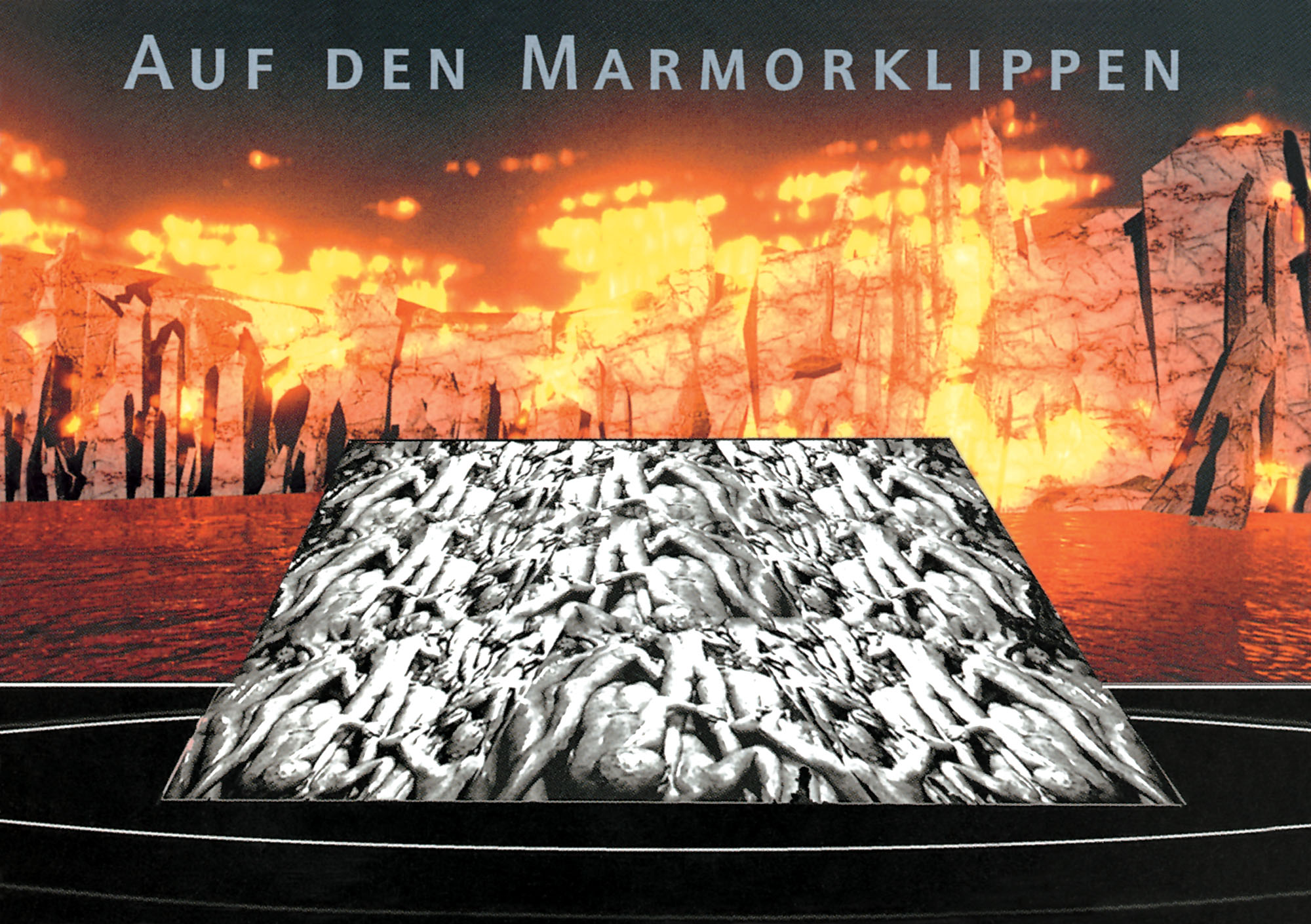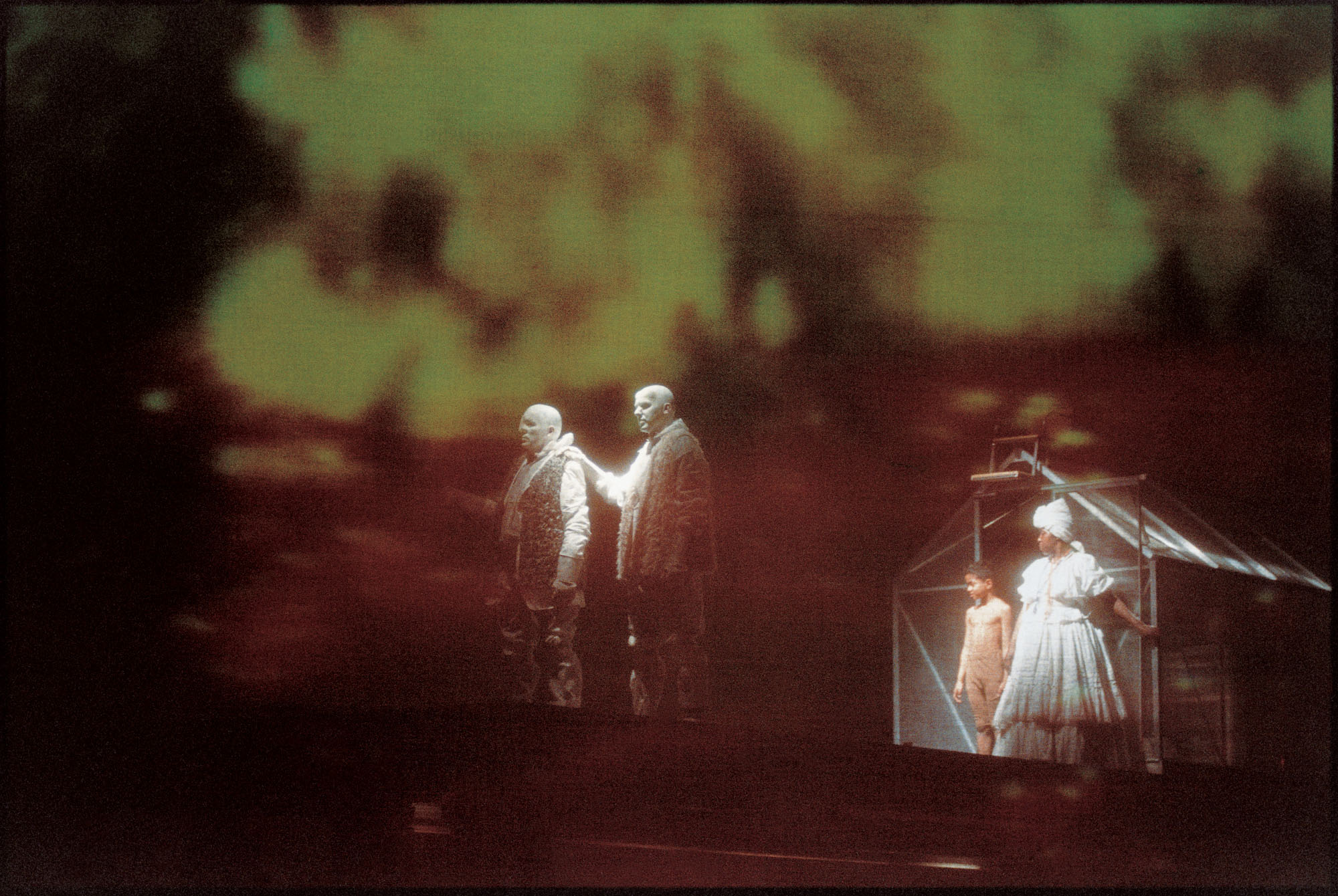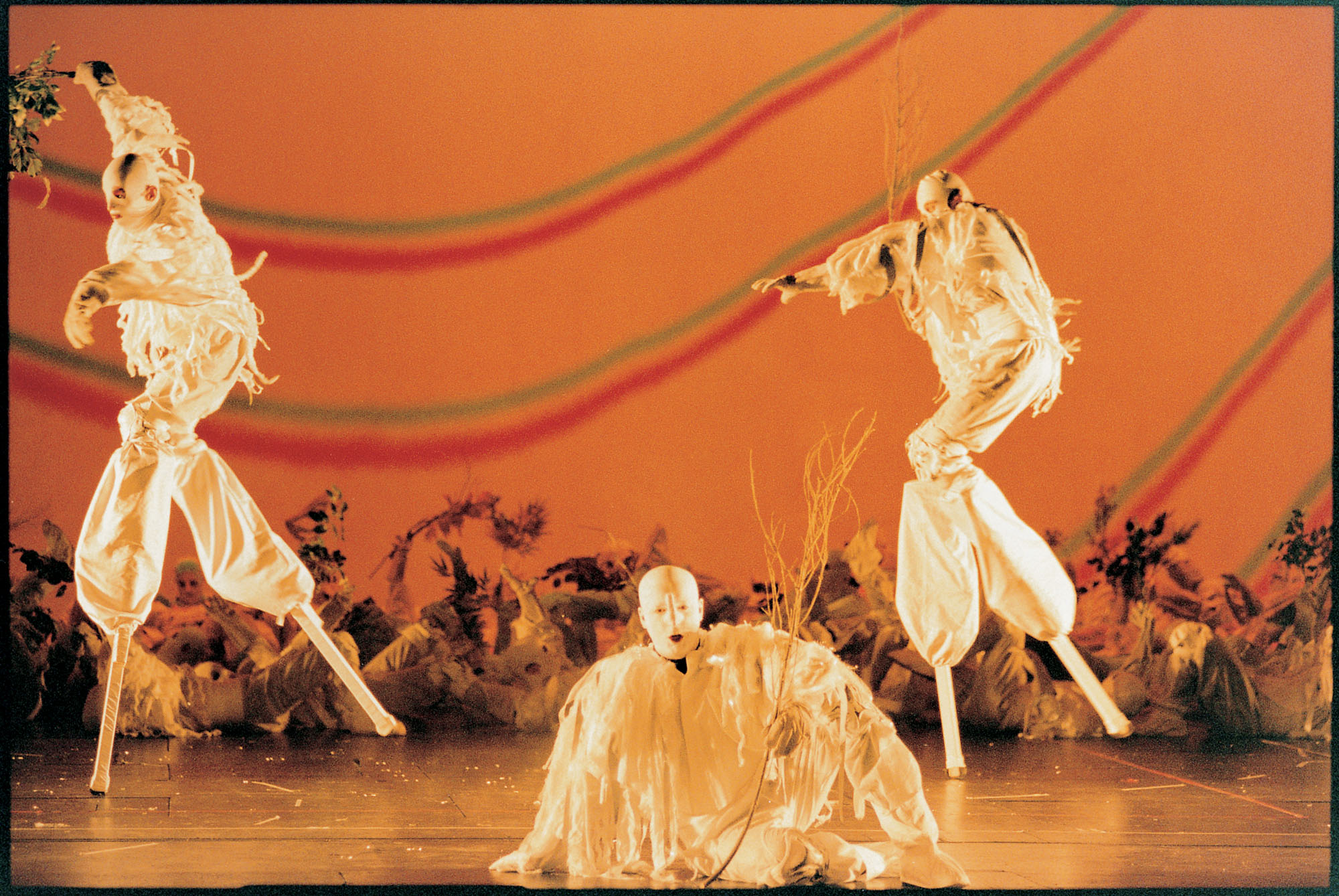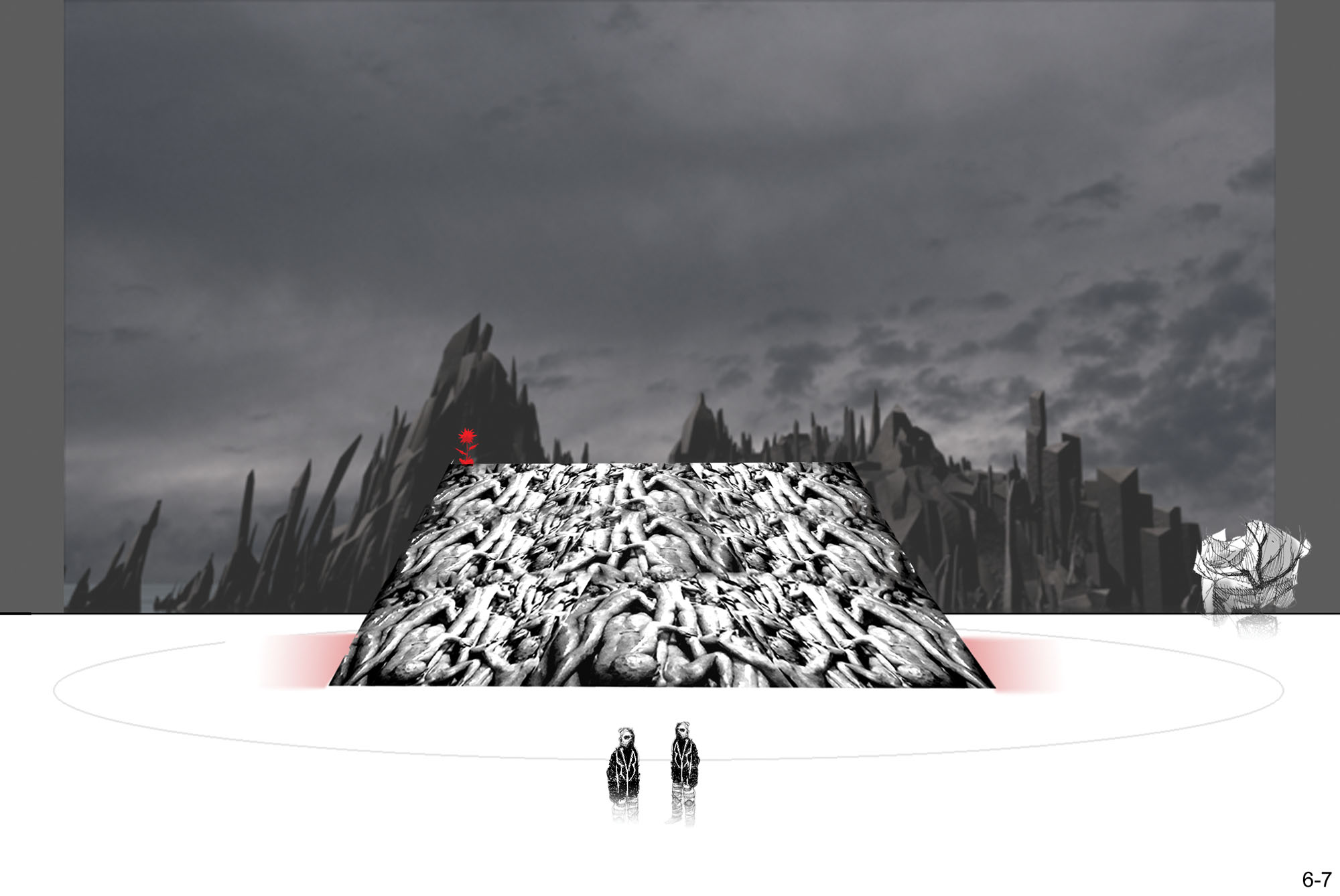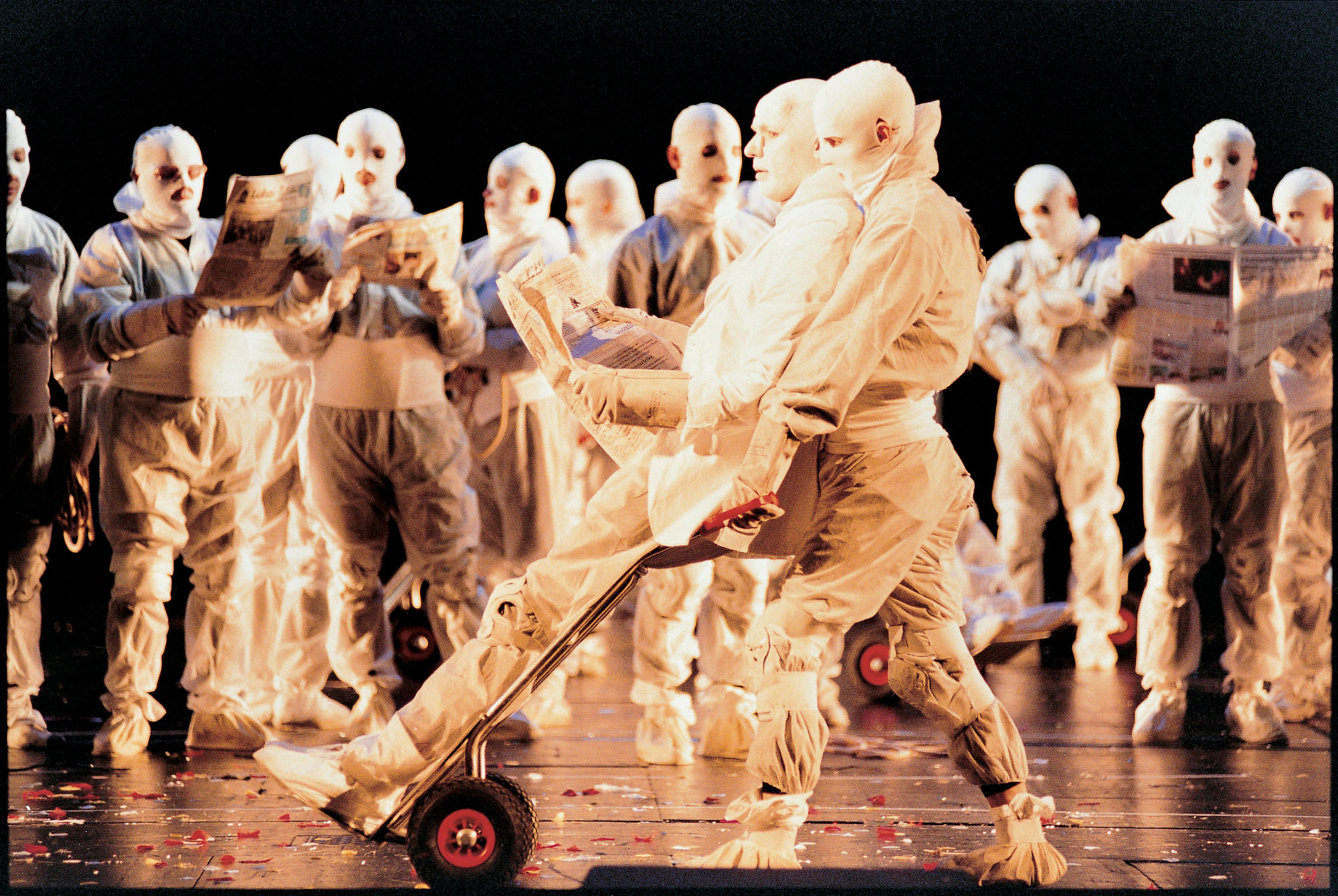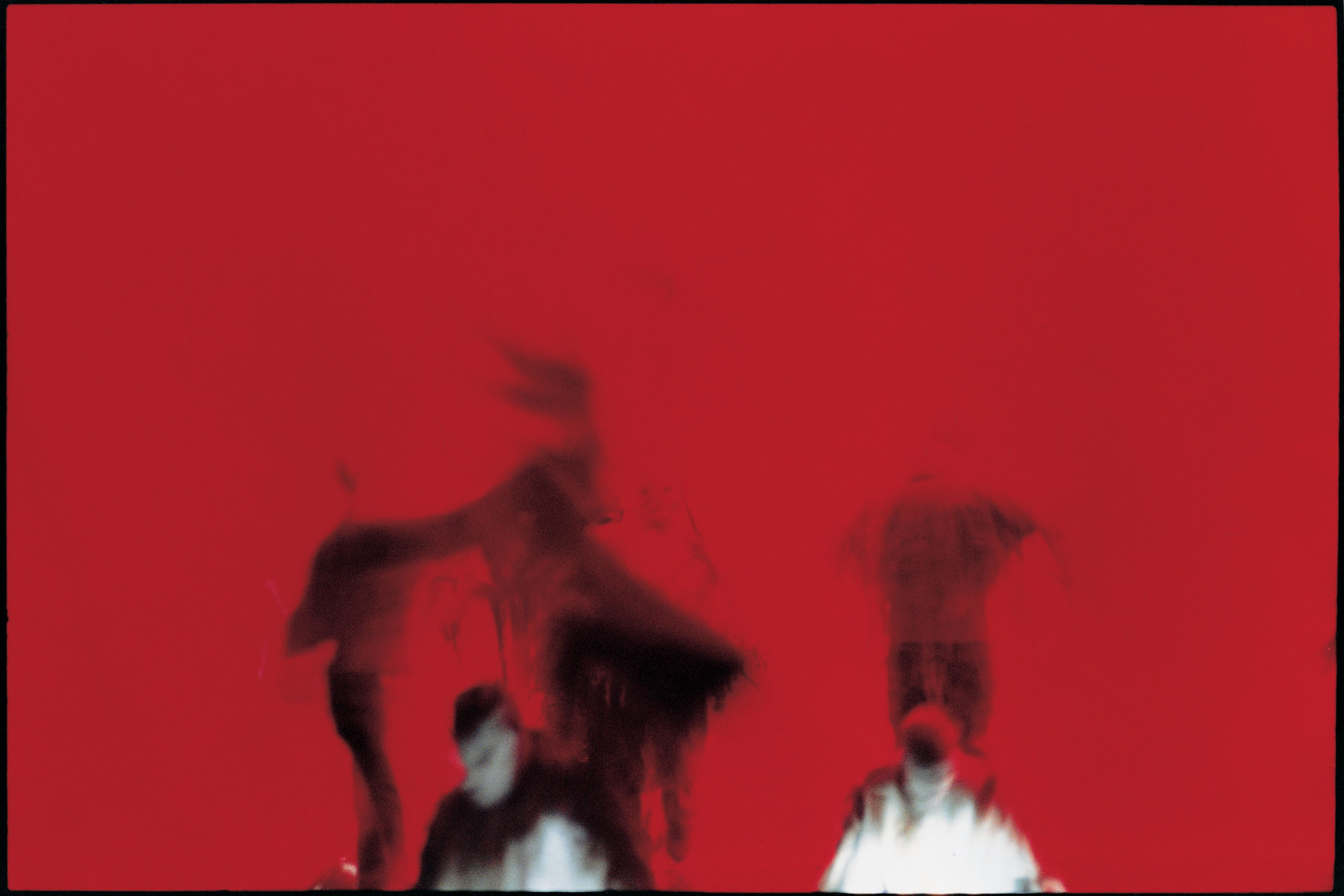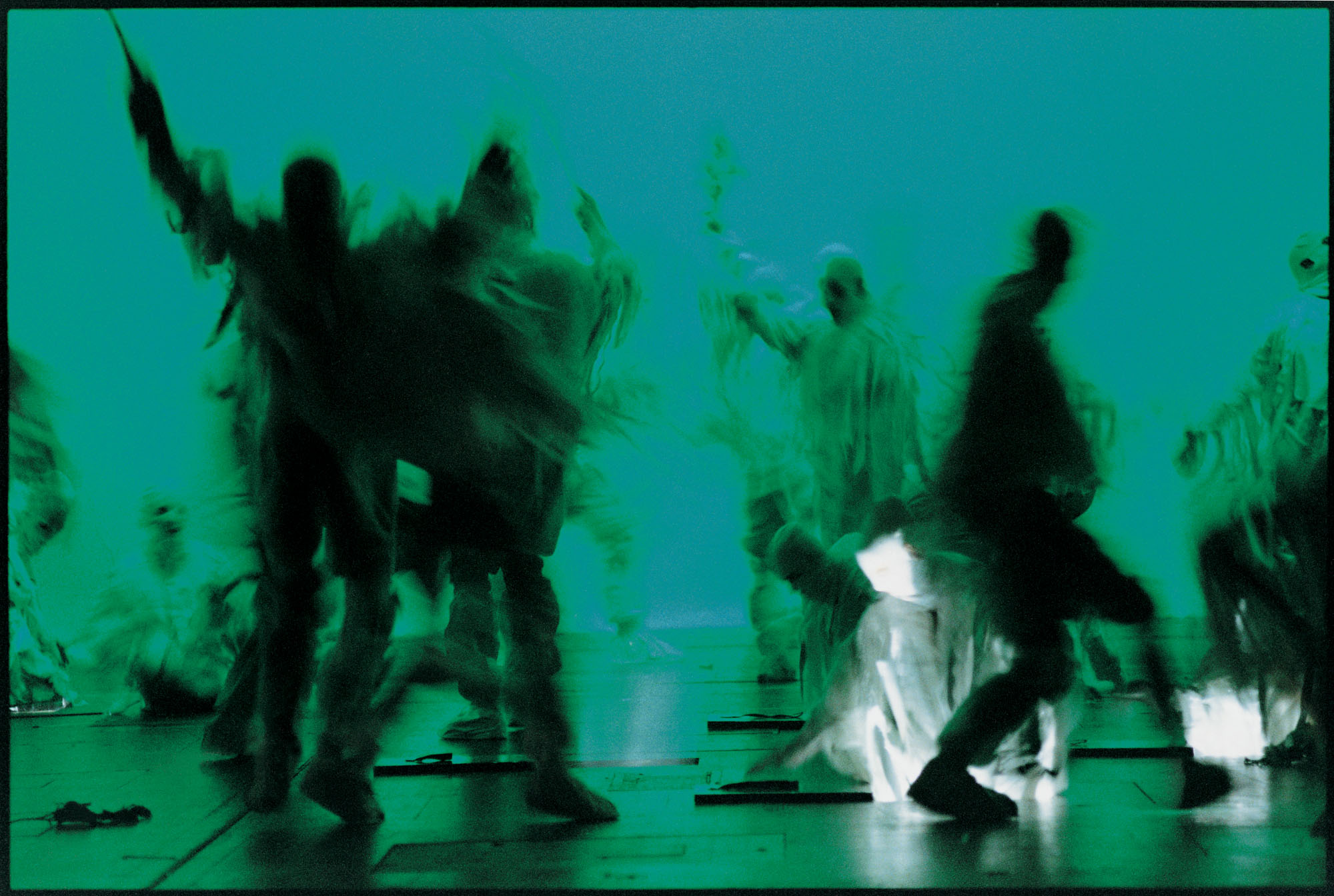Música
Giorgio Battistelli
Textos
Giorgio Van Straten y Giorgio Battistelli, basado en la obra homónima de Ernst Jünger (1895-2001).
Dirección escénica, escenografía y vestuario
Carlos Padrissa (La Fura dels Baus).
Dirección musical
Adam Fisher
Directora asistente
Valentina Carrasco
Diseño de Iluminación
Andreas Rehfeld
Creación y realización vídeo
David Cid
Dirección del coro
Wolfgang Balzer
Dramaturgia
Heindrikje Mautner
Reparto
Hermano Minor: Thomas Berau.
Hermano Otho: Tomas Jesatko.
Belovar: Winfried Sakai.
Fürst von Sunmyra: Yuriy Svatenko.
Guardas forestales: Alfred Tewes, Vasile Tartan, Stephan Somburg, Hyun-Seck Kim.
Erio (un niño): Naom Tesfa.
Lampusa: Foster Blum.
Voz de la memoria
En directo desde Barcelona: Jürgen Müller
(La Fura dels Baus).
Actores
Katja Alves, Christian Cujovic, Alex Dörr, Chrisian Flemming, Ralph Hauber,
Josh Maußhardt, Olga Mayer, Jessica Naujoks, Rainer Polsz, Giovanni Romano,
Soolmas Sadraei-Kashani, Anne Serbin, Melanie Vollmer.
Nationaltheater-Orchester Mannheim
Chor und Statisterie des Nationaltheaters Manheim.
Producción vídeo
Full animation
Director de animación 3D
Francisco García
Operador 3D
Noel Rodríguez
Estilo y dibujo
Sagar Fornies
Videoconferencia
Techno-Trends
Técnicos de vídeo
Marc Jabal, Joan Rodón.
Estreno
8/3/02, en el Nationaltheater Mannheim.
Representaciones
12
Una producción del Nationaltheater Mannheim.

